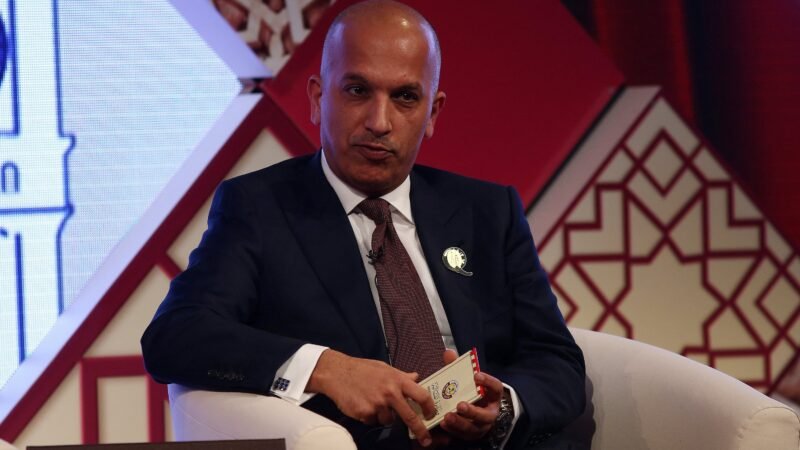Citizen Free Press: Creating Stories, Providing Voices

The Citizen Free Press represents a pivotal movement in modern journalism; furthermore, ordinary individuals take the reins of news reporting. This grassroots approach to journalism empowers citizens to narrate their own stories. In addition, it provides a diverse range of perspectives often overlooked by traditional media. Moreover, it democratizes information dissemination, breaking down barriers and allowing for a more inclusive and representative media landscape. Additionally, through leveraging digital platforms and social media, citizen journalists are reshaping how news is created and consumed, fostering greater transparency and community engagement in the process.
Introduction
The concept of Citizen Free Press is revolutionizing media, enabling everyday individuals to report and disseminate news, challenging traditional journalism norms and diversifying information sources.
A. Definition of Citizen Free Press
Citizen Free Press refers to news reporting by ordinary individuals, leveraging digital platforms to share unfiltered, grassroots perspectives, bypassing conventional journalistic channels.
B. Importance in the Contemporary Media Landscape
In today’s media landscape, Citizen Free Press plays a crucial role, offering alternative narratives and democratizing information, thus balancing the often monopolistic tendencies of mainstream media.
C. Overview of How Citizen Journalism is Changing the Dynamics of Storytelling and News Reporting
Citizen journalism is transforming news reporting by injecting diverse, real-time stories from the public, fundamentally shifting the storytelling paradigm from a singular to a multifaceted narrative approach.
Historical Context
Citizen journalism’s roots trace back to early societal communication, evolving significantly with technological advancements, especially the internet, altering how news is disseminated and consumed.
A. Evolution of Citizen Journalism
Citizen journalism has evolved from grassroots activism to a digital phenomenon, empowered by the internet and social media, allowing real-time, widespread news dissemination by the public.
B. Key Milestones in the Development of Citizen-Driven News Platforms
Significant milestones include the rise of blogs in the early 2000s, the advent of social media platforms, and the increasing use of smartphones, all of which have dramatically expanded the reach and impact of citizen journalism.
C. Comparison with Traditional Media Models
Unlike traditional media, which is often hierarchical and editorially controlled, citizen journalism is decentralized and community-driven, offering a more diverse and immediate perspective on events.
Citizen Journalism in the Digital Age
In the digital era, citizen journalism has flourished, reshaping news dissemination and public engagement through innovative and accessible platforms.
A. Impact of Social Media and Technology on Citizen Journalism
Social media and advanced technology have revolutionized citizen journalism, enabling instant news sharing and broadening audience reach, thus amplifying individual voices and perspectives.
B. Case Studies of Significant News Events Covered by Citizen Journalists
Significant events, like the Arab Spring and Black Lives Matter protests, were notably covered by citizen journalists, who provided real-time updates and personal narratives, often filling gaps left by traditional media.
C. Analysis of How Digital Tools Empower Individuals to Create and Share News
Digital tools, such as smartphones and social media apps, empower individuals to report news instantly and from their unique viewpoints, significantly democratizing news creation and distribution.
Challenges and Ethical Considerations
Citizen journalism faces unique challenges and ethical considerations, crucial for maintaining credibility and trust in the age of information.
A. Ensuring Accuracy and Reliability in Citizen Reporting
The major challenge in citizen journalism is verifying the accuracy and reliability of reports, as the lack of professional training can lead to unintentional misinformation.
B. Navigating Biases and Subjective Perspectives
Citizen journalists often grapple with personal biases and subjective perspectives, which can color their reporting and challenge the objective standards of traditional journalism.
C. Ethical Dilemmas Faced by Citizen Journalists and Their Audiences
Citizen journalists encounter ethical dilemmas like respecting privacy, handling sensitive content, and balancing personal beliefs with factual reporting, which can significantly impact their audience’s perception and understanding of events
Legal and Regulatory Framework
The legal and regulatory framework surrounding citizen journalism is complex, involving a delicate balance between freedom of expression and legal constraints.
A. Examination of Legal Protections and Limitations for Citizen Journalists
Citizen journalists often operate in a grey area, enjoying freedom of speech protections yet facing limitations related to defamation, copyright, and privacy laws.
B. The Role of Government and Policy in Supporting or Restricting Citizen Journalism
Governments and policies play a pivotal role in either nurturing citizen journalism through liberal media laws or stifling it with restrictive regulations and censorship.
C. International Variations in the Legal Status of Citizen Journalists
The legal status of citizen journalists varies globally, with some countries offering substantial protections and others imposing severe restrictions, reflecting the diverse political and cultural attitudes towards free speech and press freedom.
Impact on Society and Traditional Media
- Citizen journalism significantly influences public opinion and policy by highlighting grassroots issues and mobilizing public sentiment. These firsthand accounts can lead to swift policy changes, particularly when they spotlight social or environmental injustices, thus playing a crucial role in shaping societal priorities and actions.
- The relationship between citizen journalists and professional news organizations is collaborative yet nuanced. While traditional media may scrutinize the credibility of citizen-reported content, there is growing synergy, with professional outlets often leveraging citizen contributions to broaden their coverage and enhance the depth of their reporting.
- Citizen journalism is pivotal in promoting democratic engagement. By enabling individuals to report on local or personal issues, it encourages broader public involvement in societal discourse. This grassroots level of journalism not only diversifies the media landscape but also strengthens democratic processes by fostering an informed and participative citizenry.
Future Trends and Predictions
- Emerging technologies like AI and VR are set to revolutionize citizen journalism, enhancing real-time reporting and immersive storytelling. AI can assist in content verification and analytics, while VR offers immersive experiences, allowing audiences to witness events as if they were physically present, deepening the impact of news stories.
- Citizen journalism is predicted to evolve into a more integrated part of the media ecosystem, with increased reliance on mobile technology and social media platforms. Enhanced connectivity and real-time data sharing will empower more individuals to report instantly, making news more dynamic and diverse.
- The future of news reporting faces challenges and opportunities in balancing credibility with the inclusivity of citizen journalism. Ensuring the authenticity of decentralized news sources remains a concern, while the opportunity lies in leveraging technology to amplify diverse voices and perspectives, making news more participative and representative.
Conclusion:
In conclusion, the rise of citizen journalism marks a significant evolution in the media landscape, blending traditional news reporting with the dynamic, diverse voices of the public. While it presents challenges in ensuring accuracy and credibility, it also offers unparalleled opportunities for democratic engagement and a more inclusive representation of society’s narratives. As technology continues to evolve, citizen journalism will undoubtedly become an even more integral part of how we understand and interact with the world around us.
FAQs
- What is Citizen Free Press?
Citizen Free Press is a movement where ordinary people create and share news stories, contributing diverse perspectives often missed in mainstream media. It empowers individuals to report on events and issues directly affecting their communities.
- How does Citizen Free Press differ from traditional media?
Unlike traditional media, which relies on professional journalists, Citizen Free Press is driven by non-professionals sharing real-time, grassroots-level insights. This approach offers a more varied and personal perspective on news.
- Can anyone become a citizen journalist?
Yes, anyone with a story to tell or an event to report can become a citizen journalist. Access to a digital platform and the ability to communicate effectively are the primary requirements.
- How does Citizen Free Press ensure the accuracy of its stories?
While Citizen Free Press encourages open participation, the accuracy of stories can vary. Some platforms have verification processes, but readers are also advised to approach these stories with a critical eye.
- What impact has Citizen Free Press had on society?
Citizen Free Press has democratized information dissemination, giving voice to underrepresented communities and influencing public opinion and policy on key issues.





